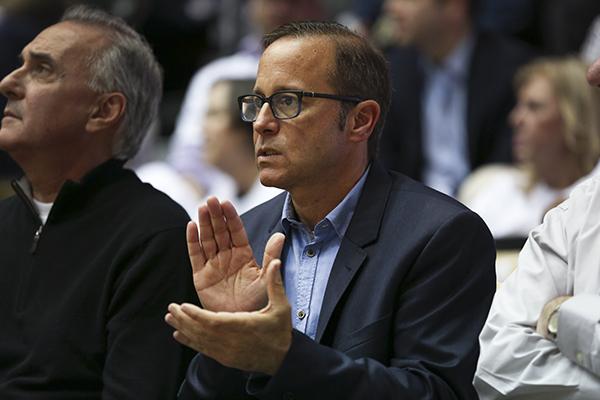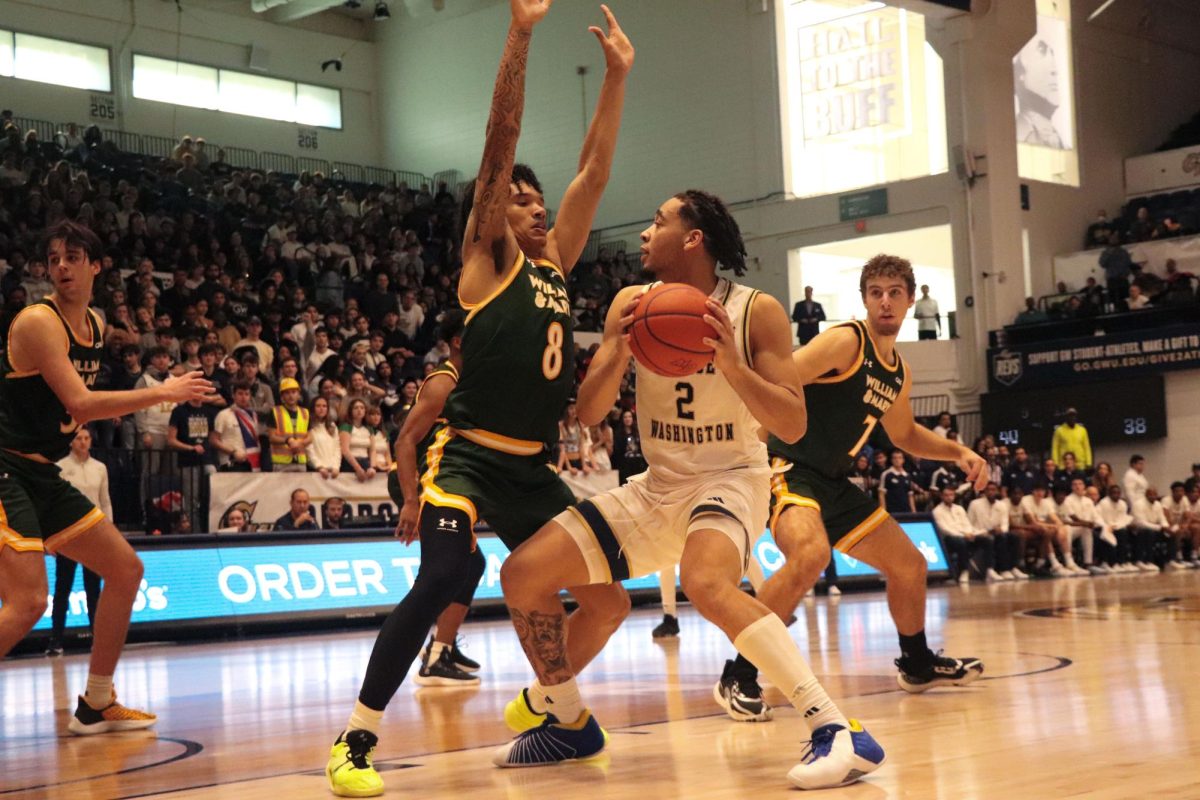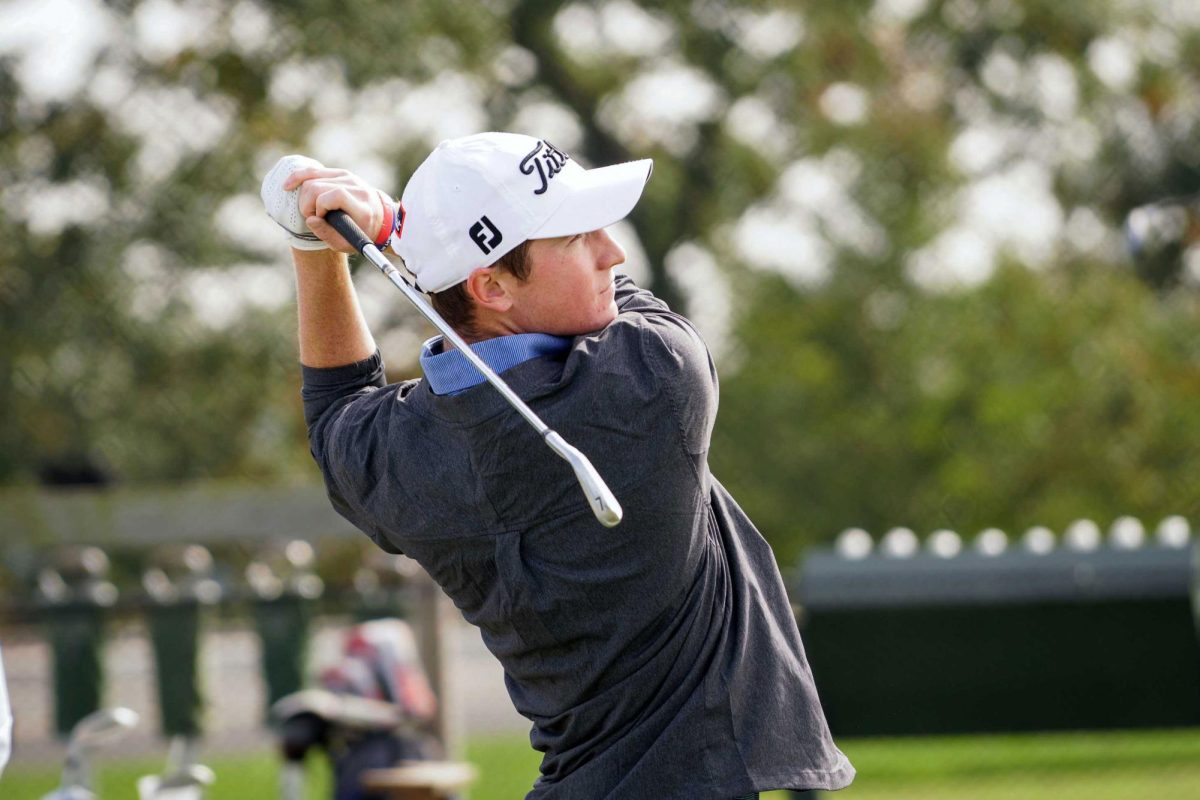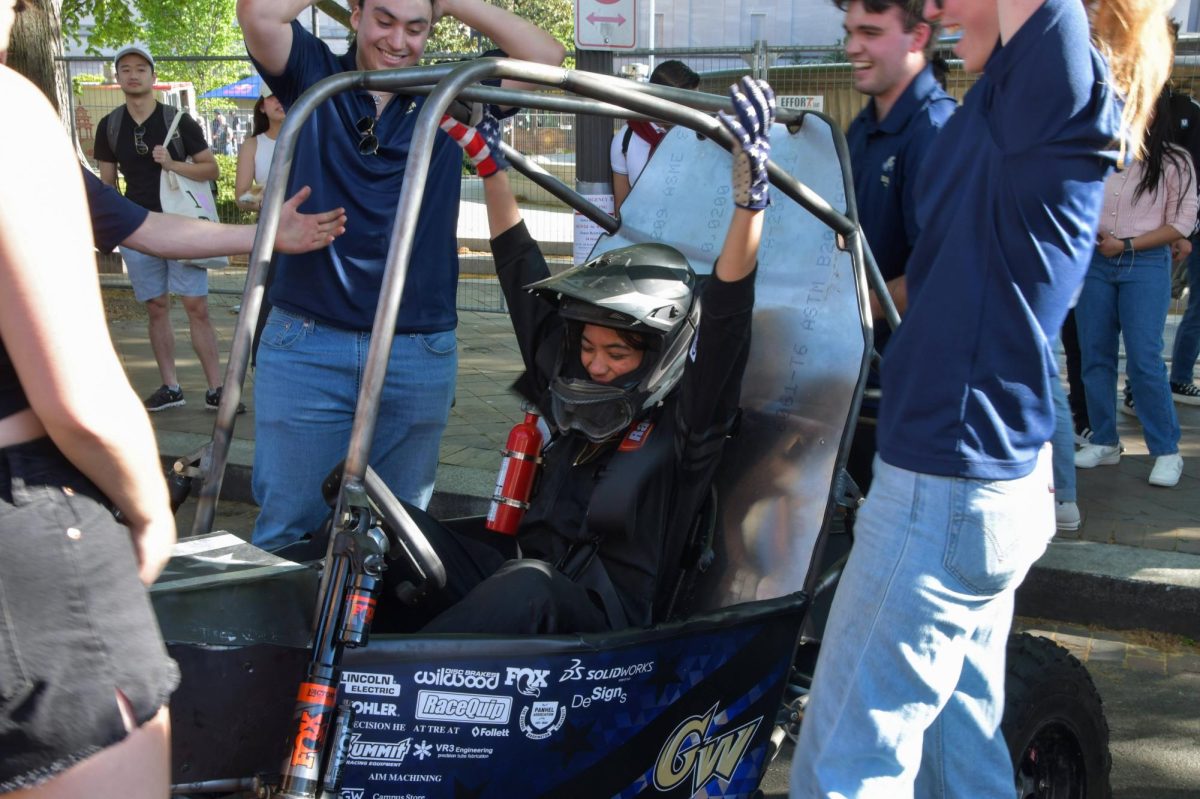Athletic director Patrick Nero likes his Starbucks and Sweetgreen at the same time every day.
“I’m best when I’m in my groove. If someone takes me out of my lane, I’m like, ‘Oh, no. It’s two o’clock. I have to have my coffee,’” he said.
If it’s routine and continuity Nero likes, he’s well-positioned for the next six years. Nero signed a contract extension last week that will keep him at the head of the athletic department through the 2020-2021 academic year.
Since Nero came to GW in 2011, men’s and women’s basketball have found their way back to the NCAA Tournament, gymnastics won its league championship for the first time, and women’s soccer and volleyball have had their best seasons in more than a decade.
He said the trick for the department now will be to stay the course over the next few years. The Hatchet sat down with the former commissioner of the America East Conference to talk about his contract extension and plans for GW sports.
How do you feel about extending your time at GW?
Patrick Nero: I’m really happy. I think for the department and for myself we’ve done so much over four years that it’s encouraged us to say, “OK, we’re probably further along than we thought we would be, so let’s continue down that path because, as you know, we have some very lofty goals with our program and we’ve seen enough success to know that we’re doing things the right way.” The last thing that we’d want to do would be bring any instability to the program. So, for me, this was really the importance of stabilizing the program to say, “Let’s stick to the plan that we’ve put into place.” We’re happy about that.
Was it an easy decision to sign an extension a year before your original contract was set to expire?
PN: I felt like we were getting to a point in time when I would have only had one year left on my current contract so I did not want to go into an unstable year. So it came time to make a decision of what will the future look like, and because I think we were all so pleased with how far we’ve come and so excited for what we can still do, I think it made sense for both the University and for me to say, “Let’s make that decision today. Let’s not start thinking about it when there’s three months left on the contract.”
What are your overall goals for what you want to accomplish as athletic director, now that you have at least six more years?
PN: It’s important that every single one of our teams – and that’s eventually when I know, “OK, maybe my work’s done” – every single one of our teams will begin their season feeling like they have a chance to win a championship, whether that’s a conference championship or in some programs maybe a national championship.
How will you continue to grow the department while GW is making budget cuts across the board?
PN: Philanthropy for us is going to be the key for the next six years, because we’ve reached our level of where we are today because of the commitment of our Board of Trustees four years ago or three years ago. But all of us, including the trustees, have further goals. We want to make sure that when we recruit a student here to GW that – just like any other department on campus or any other unit on campus – we’re able to fund what the goals of that particular student are. And in order for us to do that, that’s going to have to be done through philanthropy.
What are your goals for growing the development wing of the athletics department?
PN: When I walk out of here, I want to be able to say that our alumni giving among our athletes and among people who have an interest in athletics has significantly increased from a participation standpoint. We’ve said from the beginning that we want athletics to have a big role in impacting how we are perceived by students and others looking at the school from a community standpoint. Alumni giving has not been a strong point at GW, so I want to feel like we’re impacting that.
The benchmarking in the athletic strategic plan extends through 2016. What will you do to plan beyond that?
PN: I think we will update it now to the point that it’s very specific to each team, and so we have, similar to the colleges on campus, an advisory council made up of alumni – both former athletes and non-former athletes. That council is looking at that now. They’re looking at a few different areas. They’re looking at sports sponsorship. They’re always looking at how many sports should we have, ‘Which ones are they?’ and ‘Can we be competitively successful?’ So that’ll be a big part of the next steps for our strategic plan. They’re looking at revenue generation – how we are able to continue to fund not just through philanthropy but through ticket sales, media rights, those types of things.







